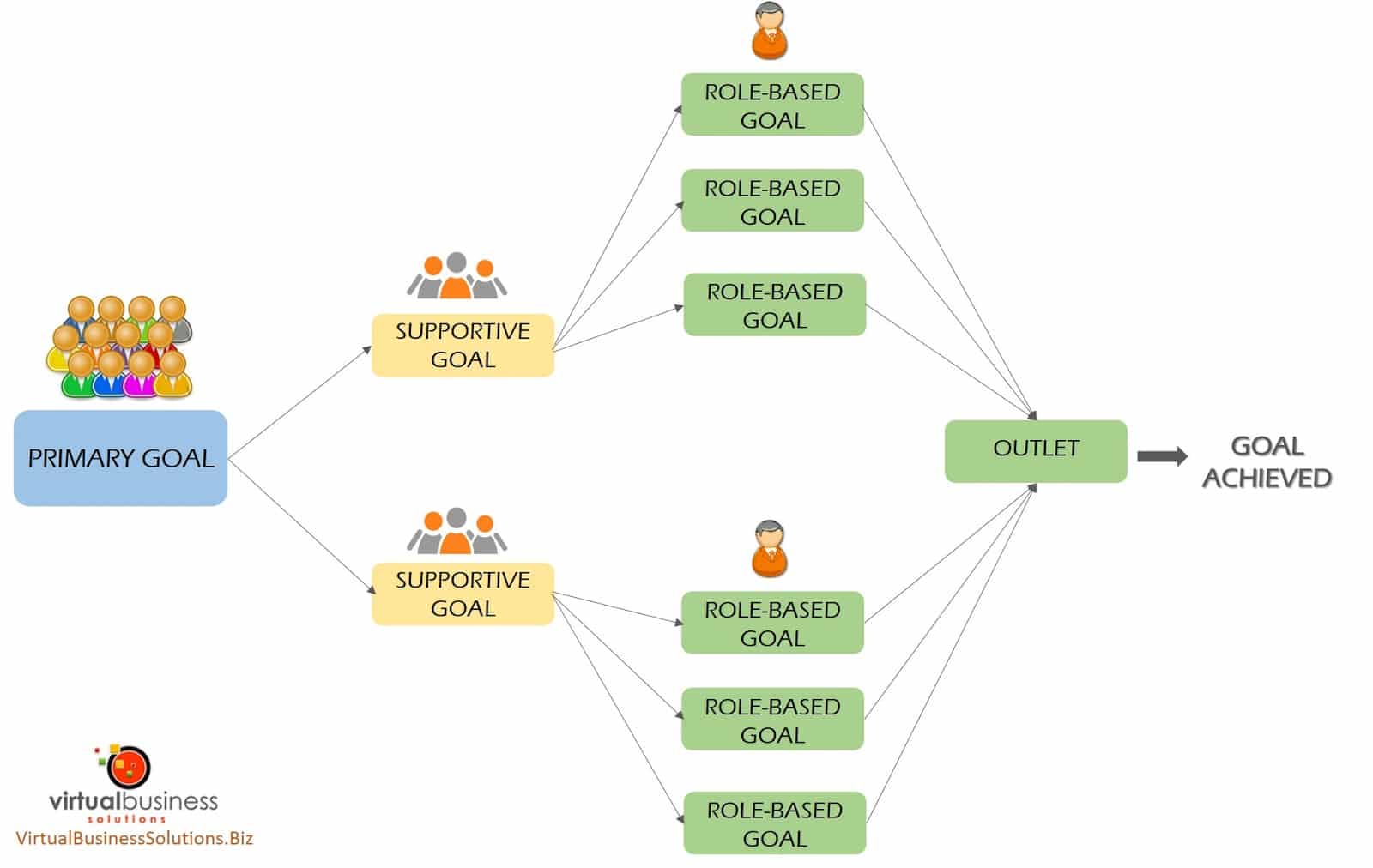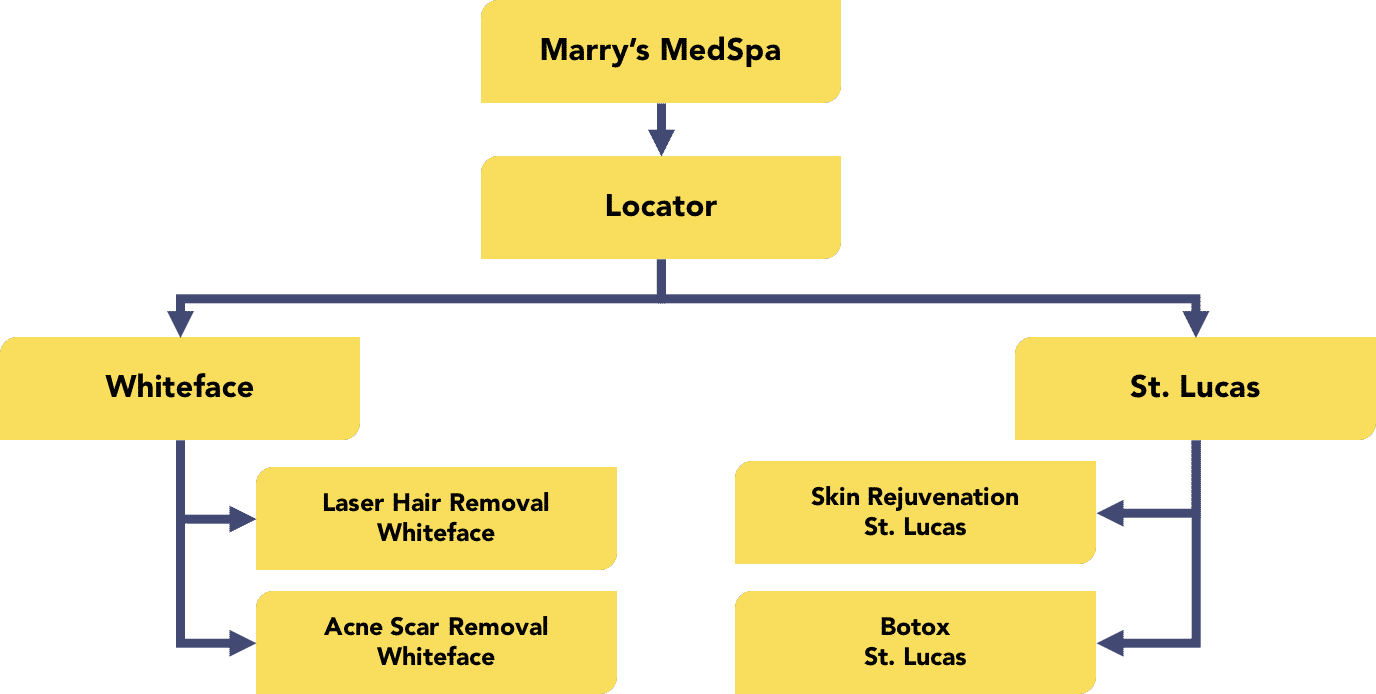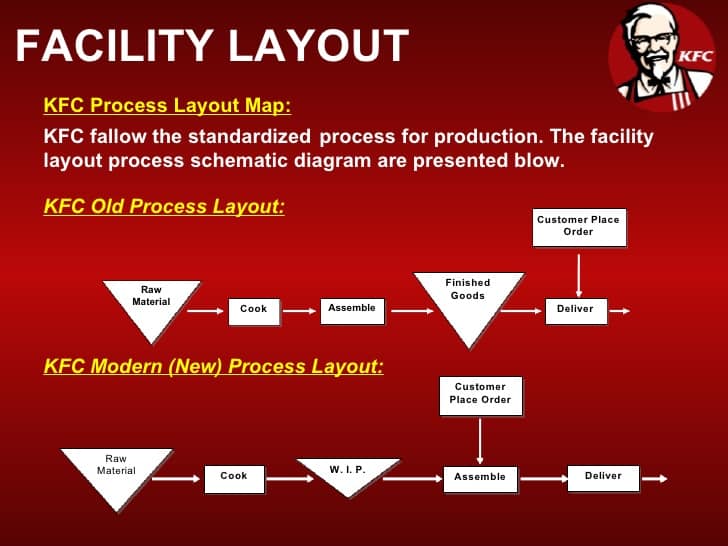Today, we’re going to provide you with a complete framework for rolling out a franchise-wide content marketing strategy.
Content marketing is a very compelling marketing tool for franchisors for a number of reasons:
- It provides a unique, more meaningful avenue for engaging with existing customers and local communities.
- It is a phenomenal vehicle for placing a brand in front of new users without losing goodwill.
- It is an integral piece of local SEO in 2016 (a mandatory pursuit for franchises).
While content marketing has tremendous upside for franchisors, it also requires upfront investment, in-house talent, and long-term commitment in order for it to payoff. And to make things more complex, it requires coordination between the head office and each franchise location involved.
That’s why we’ve put together a complete framework for rolling out your content marketing strategy. We’ll show you what needs to be handled at HQ and what should be designated to your franchisees.
Let’s get started.
The Franchise Content Marketing Framework
The first question that has to be asked deals with delegation between the franchisor and the franchisee. What is HQ’s role and what is the role of each individual location?
Fortunately, you already know the answer to this question. It’s the same model you are already using for business operations.
- Franchisor provides the plan, strategy, tools, and systematic process.
- Franchisees execute the process according to the provided plan.
Areas of flexibility and opportunities for franchisee specific creativity are clearly set and defined.
This is the exact same mentality needed for content marketing. Your job at HQ is to provide franchisees with a winning strategy and everything they need to succeed. The more “fill in the blank” you can make it for individual franchisees, the more successful they will be.
Let’s take a closer look at some of the pieces to this puzzle.
Define Goals, Metrics, and Milestones
Your first and most important goal as a franchisor is to define the goals, metrics and key milestones of your brand’s content marketing efforts.
These goals are best defined with the help of a content marketing consultant or agency. Look for experts with proven track records, who have achieved real ROI for past clients.
Content marketing goals should be an adaption of your primary business goals. They should also include the following characteristics:
- Specific: Goals should explicitly include key participants, target metrics, and a designated timeframe.
- Realistic: Goals should be ambitious yet realistically achievable. This is where having an expert involved goes a long way.
- Measurable: Goals should ALWAYS be trackable via some form of analytics. If you can’t measure it, it didn’t happen.
- Valuable: Goals should have a direct and trackable correlation with a real increase in value for the business. This usually means leads and sales.
Business goal mapping: how will business goals be rolled out across the company?
Image Credit: VirtualBusinessSolutions.Biz
Here are a few examples of what a good content marketing goal might look like:
- Build an email list of 5,000 local subscribers per location in 6 months that converts on new offers at 3%.
- Drive an additional $50,000 per month in total online sales within 6 months.
- Increase organic traffic to franchisee websites by 200% within 3 months while maintaining a conversion rate of 2.5%.
Here are a few examples of bad content marketing goals:
- Increase traffic each month for 3 months.
- Double Facebook likes and add 10,000 new Twitter followers.
- Create and promote one new post per week for 8 weeks
Map Out Websites & Social Media Profiles
Before you start creating content, you will need to decide on the site structure for your franchise.
There are typically two different strategies you can use here.
Individual websites give each franchisee more freedom and can potentially allow for a more localized experience. This might be a good option for franchises that focus on location individuality as opposed to uniformity, like McMenamins in the Portland Area.
It can also be a good option if you have a business process that facilitates significant online engagement.
On the flip side, having one central website is very advantageous from an SEO perspective. When you have all of your brand’s content on the same domain, it gives a significant boost to that domain and causes the authority of the entire domain to be passed down to each of the microsites.
If your brand is focused on uniformity and consistency across locations (which is usually the case for franchises), than the centralized website option is almost always going to be the better choice, particularly due to the local SEO advantages.
Internal Microsite Structure
External Microsite Structure
SEO Site Structure Strategy for Multiple Locations
When it comes to social media, you want to really let the local franchise shine. Each location should have their own social media identities for local SEO purposes, and these profiles are a great place for direct customer engagement and relationship building.
It’s always good to have at least one employee running your central brand’s accounts, and this person can also advise and review local franchisee profiles as well. It’s important that franchisees don’t undermine the brand with their social activity, but it’s also important that they have the freedom to be creative and to engage with the local community like only local employees can.
Create A Content Plan
In order to run a content marketing campaign, you need a content plan.
The basic content marketing process looks like this:
If that’s a bit too much to take in at one glance, here’s the breakdown:
- Drive traffic to your website
- Convert traffic into leads
- Convert leads in customers
- Convert customers into repeat customers
This means your online “funnel” will need 4 pieces:
- A system for attracting visitors to your website
- A strategy for converting visitors into leads
- A strategy for converting leads into customers
- A system for bringing customers back again and again
Most franchises are very good at steps 3 and 4. Where you might be lacking is steps 1 and 2, and that’s why content marketing can be so effective for franchises – it focuses heavily on steps 1 and 2.
Content creation and publication is what helps drive visitors to your website. Once they get there, it’s important to capture their attention and their contact info, which is usually done via a lead magnet (more on lead magnets here).
There are quite a few different types of content you can use to drive traffic to your website:
- Informative blog posts
- How-to guides
- Podcasts
- Videos
- Interactive content
- Trending commentary
- Social media posts
- Email marketing
- Link building
You’ll want to create a content plan spanning the length of the goals you defined in Step #1. For example, if your goals are based on six months, create a six month content plan.
To create a content plan, you will need a solid understanding of content marketing. If you are new to the subject check out this in-depth guide.
Create A Systematic Process For Franchisees To Follow
If there’s one thing that cause franchises to succeed, it’s process – systematic, repeatable process.
When attempting to roll out coordinated content marketing across numerous locations, implementing a systematic process for franchisees to follow is vital, both for the success of the individual location and the success of your brand wide campaign.
Think McDonalds, KFC or any franchised quick-service restaurant for that matter. The value of these restaurants isn’t in them offering the greatest food experience in the world, but rather, it’s in their ability to provide a fast, enjoyable experience consistently. Consistency in taste, procedure, wait time, etc. is what makes them so successful.
The reason why the franchise model is so successful is due to systematic process creation.
Franchisees should know exactly what is expected of them at all times and also understand how much staff time should be required to complete it.
Some brands opt to deliver the majority of their content via the franchisor’s website. Others have franchisees handle most of it. There is no universal “best strategy”, so again, you will want to consult with an expert to identify the best distribution for your franchise, but the key here is that once that plan is in place, the individual franchisees need to be given a very straightforward system to follow.
Track Everything
You can’t run a successful marketing campaign without religious data tracking. This is especially true for a more complex campaign like content marketing, where there are numerous factors and metrics, and virtually any of them can hold the key to success.
While you should definitely involve franchisees in following and analyzing their performance data, ultimately, the responsibility of turning data into strategy falls to the franchisor.
Here’s a small example of the types of data you should be tracking at all times.
- Bounce rate: This measurement will indicate how well the content on a website is doing. The longer people stay on your pages, the more valuable your content.
- Backlinks: When other web content links to your central website or microsites, it improves your search engine ranking.
- Social engagement: Track the number of impressions, shares, likes, and click-throughs. These give you a good idea of what your audience wants to see.
- Email data: Email marketing will be a big part of your ROI, and it’s important to track opens and click-throughs in order to optimize performance.
- Visitor behavior: Learn the behavior of site visitors by using heatmaps or website tracking software.
- Phone calls: Use different phone numbers for different campaigns and monitor what people are responding to.
While data tracking requires some work on your end, there is also a host of tools that can make the process easier:
- Backend Analytics Tools
- User Behavior Tools
- Social Analytics Tools
- A/B Testing Tools
- Call Tracking Tools
Using a combination of these tools will allow you to understand what visitors are doing on your web properties at all times and then find a way to optimize that experience and drive sales.
How To Produce & Delegate Franchise Content Production
Now that we have core strategy, it’s time to get into the nitty gritty of content production and delegation. Who is going to create it and where is it going to be published?
You have two primary options for this:
- Create and publish the bulk of your content via the franchisor’s website
- Make each franchisee responsible for creating and publishing regular content
As a general rule, if you decided earlier that each location merits it’s own standalone website, you will probably also want each site to create and publish its own stream of website content.
If you are a uniformity-focused franchise, and you decided to make each franchise site into a microsite, you will probably want HQ to produce the majority of the content and have each franchisee focus on their unique social media profiles.
The following sections will vary a bit based on that decision, but we’ve tried to incorporate principles that apply to both options.
Designate A Central Content Director
Once your brand’s central marketing goals have been specified, it’s imperative that you hire or designate a content director who has the chops needed to oversee the entire campaign.
You have a few different solid options for this:
- Designate an existing employee for this position
- Hire experienced outside talent to take the position
- Outsource management to a content marketing agency
Designating someone already in-house for this role requires a uniquely well-suited individual. It’s really only something you want to do if there just happens to be a great fit.
For example, if you have a manager in your marketing department who got their start in content marketing and managed content before getting hired to your team, that could be a good fit.
What isn’t a good fit is taking someone with no experience or interest in content marketing and forcing them into the role. That’s a bad idea.
You’ll need someone with the following skillsets:
- Project management skills
- Ability to manage in-house and outsourced talent
- An understanding of SEO optimized content
- Ability to create and oversee social media posts
- Knowledge of target audience
- Understanding of analytics and related tools
- Ability to conduct competitive research
- Strategic understanding of content marketing
At the very least, the content director must be able to create a content marketing plan, conduct target audience and keyword research, get writers to create SEO friendly content, upload it to the website(s), distribute the content on the social media accounts for each franchisee, and manage analytics and reporting.
Naturally, it’s going to be unlikely that you just find someone like this floating around in your organization, particularly if you’ve never run a content campaign before.
In most situations, hiring outside talent or outsourcing to an agency are your best bets. Which one you choose will be primarily based on your franchise’s size.
The larger your franchise, the more beneficial it will be to hire outside talent to become part of your permanent in-house team. This requires a fairly sizable upfront investment, and you will still want to bring on an expert consultant to get started, but over the long haul it will be more cost efficient.
If you are a smaller to mid-sized franchise, it might be worth it simply outsource content management to a proven content marketing agency. You will almost always see quicker results with a good agency, and you can always train and bring on an in-house team down the road.
Create Content Teams
One person isn’t enough to run a content marketing campaign at the franchise level… not even close. Once you have a solid content director in place, it’s time to assemble a talented team.
There is quite a diversity of skillsets that are either necessary or at least advantageous for content marketing. No one person will have all these skills, but you can probably cover them all with a talented handful of people.
With so many diverse skills needed, digital marketing can be complicated.
Image Credit: Business2Community
Here are some of those skills you’ll need to have covered:
- Research
- Social Media
- Branding
- Content creator
- Graphic design
- Copywriting
- SEO writing
- Technical SEO
- Email marketing
- Analytics
- Paid advertising
- Website management
Franchisor Focused Content Marketing Team
If you decide to keep the bulk of your content marketing central, then your team and skills distribution will probably looking something like this at the beginning:
Franchisor Team:
Content Marketing Director
- Research
- Branding
- Analytics
- Technical SEO
- Social Media
- Email marketing
- Paid advertising
Full Time Writer
- Content creator
- Copywriting
- Technical SEO
- Social Media
- SEO writing
- Email marketing
Graphics & IT
- Graphic design
- Analytics
- Technical SEO
- Social Media
- Website management
Franchisee Teams:
Part-Time Social Media Manager
- Social media
- Branding
- Analytics
- Content creator
These skills can be further specialized the bigger your team becomes, but in the real world, it is very realistic to find these types of skills groupings in various individuals, allowing for almost everything to be covered with a minimum team of three.
Franchisee Focused Content Marketing Team
Alternatively, if you decide to have primarily localized content production, your distribution could look more like this:
Franchisor Team:
Content Marketing Director
- Research
- Analytics
- Copywriting
- Content creator
- SEO writing
- Social Media
- Email marketing
- Paid advertising
Graphics & IT
- Graphic design
- Branding
- Analytics
- Technical SEO
- Social Media
- Website management
Franchisee Teams:
Full-Time Content Manager
- Content creator
- Graphic design
- SEO writing
- Social Media
- Website management
Part-Time Assistant
- Social media
- Content creator
- Graphic design
For local content production, you will need a full-time employee at each franchise focused on managing content for that location. You can then have other employees provide part-time assistance based on their skillsets.
As you can see, the fewer people you have on a team, the more multi-talented everyone needs to be.
Designate A Local Franchisee Social Media Manager
For most franchises, having a central team handle brandwide content marketing is going to be ideal.
In this case, you will need to find a competent social media manager for each location. Depending on franchisee resources, this could be a full-time hire specifically for social media, but in many cases, it will make more sense to have an existing employee take on part-time social media management duties.
Here’s what to look for in selecting this individual:
- Lived in local area for at least a few years
- Active part of the local community
- Engaging personality
- Professional and reliable
- Moderate writing abilities are helpful
- Moderate graphic design abilities are also helpful
The entire point of franchisee-based social media is to directly engage with local consumers. A lot of businesses today simply throw up cookie cutter posts, comments, etc. and think they are accomplishing something.
If you aren’t engaging with real people in your local area, your social media efforts are a waste of time. This is why it’s very important to have someone local running your social campaigns – someone who is active in the community and can engage with that community.
Integrate Content Marketing With Customer Support
It costs approximately six or seven times more to acquire a new customer than it does to keep an old one.
As you begin to roll out content marketing to bring in new leads and customers, you will also be creating points of contact for existing customers. It’s incredibly important that you integrate these efforts with your overall customer support strategy.
Blog posts, social media pages, youtube videos, etc. – anything created becomes a point of contact for your business, and you need to be prepared.
The method you use will depend on the medium.
Social media: Many people today look first to social media to resolve customer complaints. Social media managers need to be trained in customer support and given a system for resolving complaints. Typically, this looks like a friendly comment and a private request for the needed information to file the customer’s complaint via your official customer support system. This is fairly easy to do and just requires some tact and minor training on the part of the employee.
Email marketing: If you are actively sending out emails, this can be another channel in which customers will contact your brand. You can either funnel replies automatically into an email-based customer support system, or if resources permit, you can have someone who monitors emails and personally respond before sending people through the automated system.
Blog posts: As your audience grows, it’s important to reward engaged customers. One of the easiest ways to do this is simply to respond to every comment left on your blog posts or other forms of media. Comments can also include customer complaints or requests, and just like with social comments, it’s important that whoever is managing responses understands how to tactfully funnel the disgruntled customer into the your automated support system.
Integration with customer support is a frequently overlooked aspect of content marketing, but when you are coordinating a franchise brand, it’s not something you can afford to overlook as well.
Conclusion
Thanks for reading! We hope this framework for franchise content marketing was helpful and leaves you feeling more confident about rolling out a new campaign.
In summary, remember the following steps:
- Define Goals, Metrics, and Milestones
- Map Out Websites & Social Media Profiles
- Create A Content Plan
- Create A Systematic Process For Franchisees To Follow
- Track Everything
- Designate A Central Content Director
- Create Content Teams
- Designate A Local Social Media Manager
- Integrate Content Marketing With Customer Support







